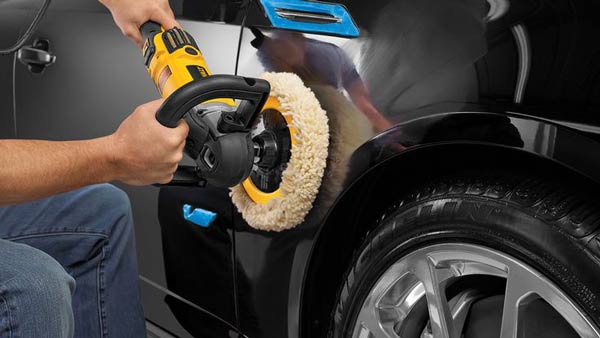WHAT IS 9H CERAMIC COATING?

The 9H level of hardness of ceramic coatings is the subject of several myths. Some dubious companies claim that their coatings are 9H on the MOHS scale, while other local competitors—likely ignorant of ceramic coatings—assert ludicrous levels of hardness like 15H or 18H. Still other brands—completely bewildered—argue that H stands for hydrophobicity rather than hardness. It is advised to look for best Ceramic Coatings In Delhi.
Ceramic coatings are manufactured synthetic chemicals based on quartz-silica or silica. They are regarded as permanent coatings since they cannot be eliminated unless you deliberately ignore them or remove them through compounding or polishing. True ceramic coatings are a type of long-lasting exterior paint protection for automobiles that are applied in liquid form and cure to create a hard, glass-like layer on top of the paint. The demand for 9h ceramic coating price in delhi is increased over time.
Ceramic Coating: What is it?
A chemical polymer solution called industry-grade ceramic coating is used to coat a vehicle’s exterior to shield the paint from environmental deterioration. It is typically applied by hand, blending it with the paint on your car to add a second hydrophobic layer of defense. The car’s original paint job is not affected by this chemical interaction because a fresh layer is formed. While many auto enthusiasts and even detailers mistakenly think that ceramic coating is a substitute for clear bra (paint protection film), in actuality it is a substitute for waxing.
What is the lifespan of a ceramic coating?
Depending on the coating, the method of application, and the level of upkeep, ceramic coating protection can last anywhere between one and seven years. For the optimum longevity, these three elements—product, application method, and maintenance—are equally crucial. Due to the higher likelihood of wear and tear, the ceramic coating on a bike may have a shorter lifespan than the coating on a car.
The hardness of ceramic coatings is actually unaffected by any of the aforementioned factors. 9H is the designation for the ceramic coating’s hardness test after it has fully dried on the surface where it was applied. It is based on the “Pencil Hardness Test,” which evaluates the scratch resistance of cured coatings using actual graphite pencils. They are also referred to as glass coating, nano coating, and quartz coating. When cured, they all produce a SiO2 (silicon dioxide) coating on the surface despite having various characteristics or formulas.
Typically, silicon dioxide (silica, Si02), which is derived from raw materials like quartz and sand, makes up nano ceramic coatings. As a supplementary hardening agent, certain types and brands additionally include titanium dioxide (titania, Ti02). When applied to a car’s paint, the two combine chemically to form a bond with hydrophobic, or water-repellent, properties that make the paint durable and scratch-resistant in everyday use.
Benefits & Advantages of Ceramic Coatings
Ceramic coatings maintain the appearance of your car by enhancing the intensity of the paint work and giving it a glossy appearance. Due to their exceptional chemical and scratch resistance, these protective coatings aid in reducing swirls and scratches.
These glass coatings have exceptional UV protection, which prevents the oxidation and subsequent fading of the car paint. Your car can be protected from harm from the outside with a quartz coating, which also stops impurities from adhering to the paint’s surface.
Your automobile will grow dirty considerably more slowly and require fewer regular maintenance washes because to these nano coatings’ ability to reject water and all water-based dirt and grime that beads on the surface and slides off.
Final thoughts
Nano coatings are sealants with better chemistry; as a result, their lifetime is greater than 12 months and they create stronger molecular interactions. Although ceramic coatings are normally harder and more durable than the clear coat on your automobile, they may still be scratched and swirled, and if that happens, they must be compounded and polished like a regular clear coat. Ceramic coatings are the most challenging to install but will last the longest. Ceramic coatings have high UV protection and are incredibly chemically and oxidation-resistant, which keeps the paint from oxidising.
F&Q’s
1 How long does a 9H ceramic coating last?
Depending on the coating, the method of application, and the level of upkeep, ceramic coating protection can last anywhere between one and seven years. For the optimum longevity, these three elements—product, application method, and maintenance—are equally crucial.
2. What is the cost of 9H ceramic coating?
Cost of Nano 9H Ceramic Coating per litre is Rs. 1500
3. What is the downside to ceramic coating?
Ceramic coating has a number of drawbacks, such as the potential for water spots and scratches, high cost, and requirement for expert installation. Nothing can completely shield an automobile from harm, even with the help of several layers of liquid polymer and other sturdy materials.
